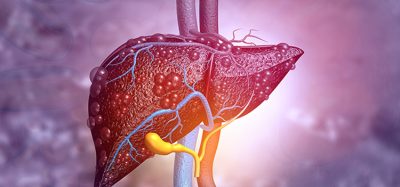Inflammation inhibitor could be used to treat sepsis
Posted: 19 November 2018 | Drug Target Review | No comments yet
An inhibitor that stops the action of OGG1 signals, could potentially be used as a treatment for life-threatening Acute Respiratory Distress Syndrome…


Scientists from the University of Sheffield have discovered a new inhibitor which decreases lung inflammation and could hold the key to treating Acute Respiratory Distress Syndrome – a life-threatening disease which affects thousands of people in the UK.
In the pioneering research, an international team of scientists aimed to make an inhibitor to an enzyme involved in repairing oxidated DNA, OGG1.
The study revealed the OGG1 protein signals inflammation and that the newly created inhibitor could prevent the onset of inflammation. This is a novel mechanism – different to other anti-inflammatory drugs currently available – and could also help to prevent our own immune system attacking itself in conditions such as sepsis, multiple sclerosis, crohn’s disease and potentially other autoimmune disorders.
Inflammation is a process where the body’s white blood cells protect us from infection, such as bacteria and viruses. However, in some conditions the immune system triggers an inflammatory response when there is no infection to fight off. This causes the body’s normally protective immune system to cause damage to its own tissues.
Professor Thomas Helleday, from the University of Sheffield’s Department of Oncology and Metabolism and lead author of the study, said: “When oxygen regulation in our cells goes wrong it can cause damage to our DNA and trigger our immune system to responding.
“Our immune system is our defence mechanism which normally fights off invasion from bacteria and viruses, however sometimes it can misfire and attack our own bodies.
“Isolating an inhibitor which can switch this response off is a major breakthrough and we are really excited about developing our research to see if we can not only decrease existing inflammation in other areas of the body, but prevent inflammation altogether.
“This would pave the way for new, effective treatments for life-threatening diseases like sepsis.”
Related topics
Disease Research, Genomics, Research & Development, Therapeutics
Related conditions
Crohn’s disease, Multiple Sclerosis, Sepsis
Related organisations
Sheffield University
Related people
Professor Thomas Helleday







